This Is Elon Musk's Hyperloop Plan
Aug 13, 2013 21:18
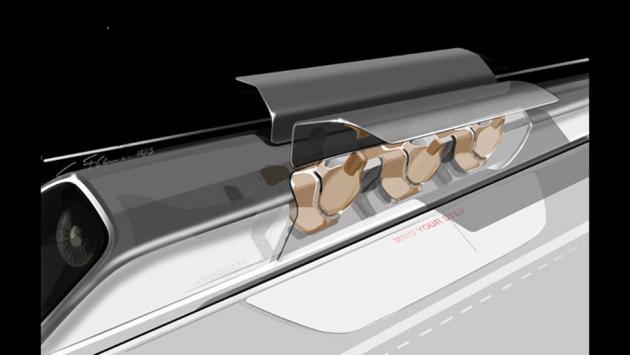
Elon Musk has just released an alpha design of the Hyperloop - the future of high speed transfer. Could this be our reality in the future?
You can read the whole PDf below, and it's chock full of information. But if you're opting for a Hyperloop type of summary, read on further.
Hyperloop is based on a few basic claims: it could get you from Los Angeles to San Francisco in 30 minutes. It would also cost an estimated $70 billion to connect two coastal cities. It's a cross between a rail gun, concord and an air hockey table.
Musk claims this can be done.
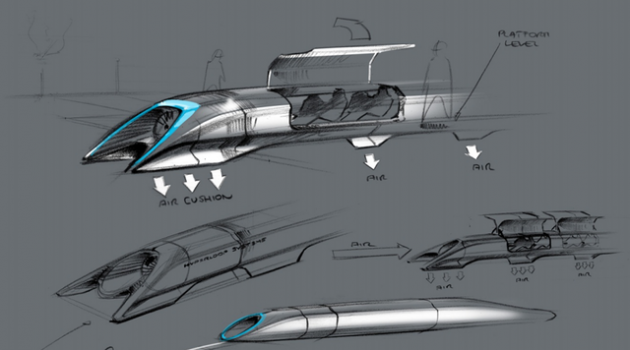
The pods
The system uses aluminum pods to be shot through elevated steel tubes. It would fly at a top speed of 760mph or 1223km/h. The pods could hold up to 28 people, but an alternative design would allow entire cars to be loaded in.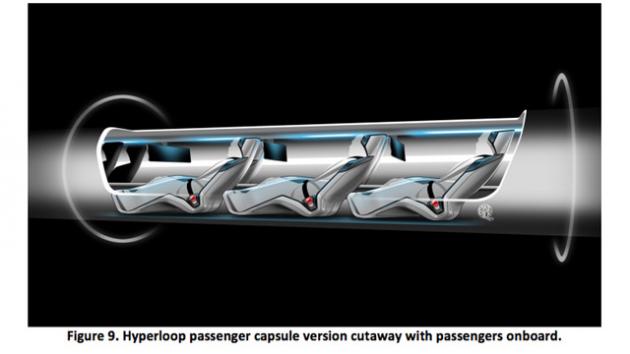
The tubes and infrastructure
The pods will travel through two low pressure steel tubes, with one in each direction. It would be welded together and stacked on top of each other, and will be elevated. The tubes will be covered in solar panels to generate most of the power needed for the transit.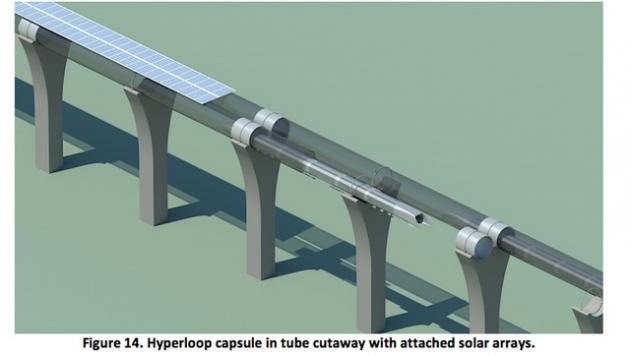
The route
According to Musk's studies, the primary advantage of using existing rights of way path instead of carving new ones is that it is relatively easy to acquire to clear the land to do so. That way, it is relatively a straight line, which is what is needed for the speed.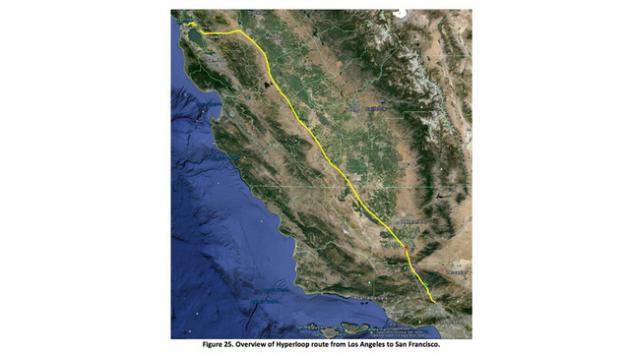
The tube is not a vacuum
Unlike some of the guesses, the tube won't be a vacuum. Musk also think that it's far too inefficient to use a fan to generate huge columns of air, as was previously proposed by Musk's "best guess" designer John Gardi.Instead, the plan is for the pods to come with battery powered air compressors on the front. It transfers high pressure air from the front to the rear, where it is stored in a compressed air reservoir.
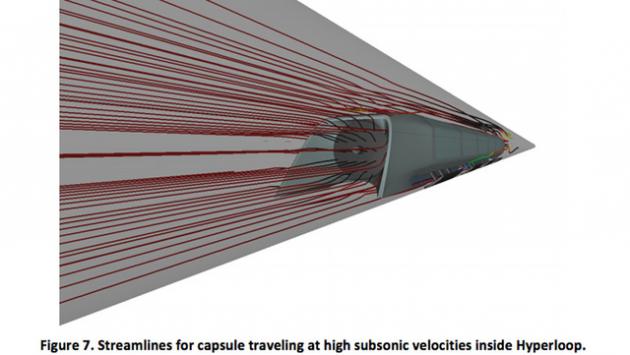
"Air hockey" levitation
The Hyperloop won't use magnetic levitation to keep the pods off the ground as it was assumed before. Instead it will float on air bearings, which work like an air hockey table to keep the pods moving friction free. Musk says that the technology has been demonstrated to reach speeds of up to Mach 1.1.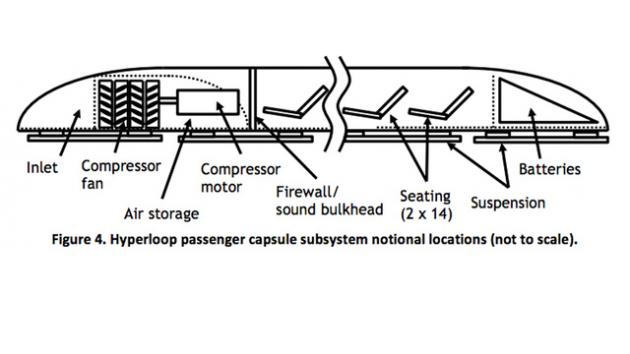
How will it accelerate?
The onboard battery in each pod will have enough to power them if they didn't need that fast of an acceleration. Musk proposes to use linear motors, similar to the ones used in the Tesla Model S. They are basically motors that have their rotors "unrolled" to produce linear motion rather than torque. 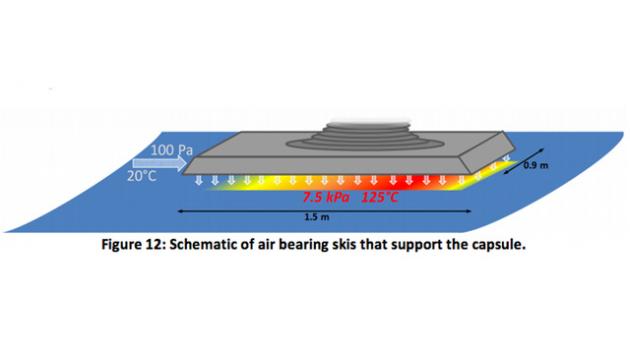
How much will this cost?
Unlike the $70 billion price tag, Musk thinks it can be built for $6-10 billion. Most of the cost would be the construction of the track and acquisition of land, and he thinks that using solar panels and some energy recapture, it can be self powering.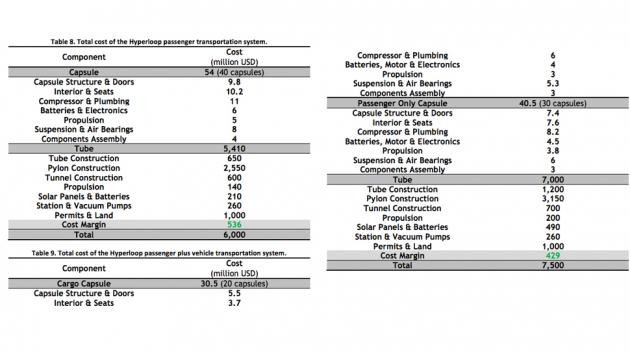
This is just the beginning...
This is still very much a preliminary design from Musk, and he hopes to get more input on it. The biggest problem to this will probably be land rights.Musk has said that he has no plans to actually build the Hyperloop himself because he has enough on his plate with Tesla and SpaceX, though he did say that was not going to do it immediately, and that he's tempted to at least make a demonstration prototype. It would probably take him one or two years, but given all the things he's got on his plate, that would probably stretch to four to five years.







































































